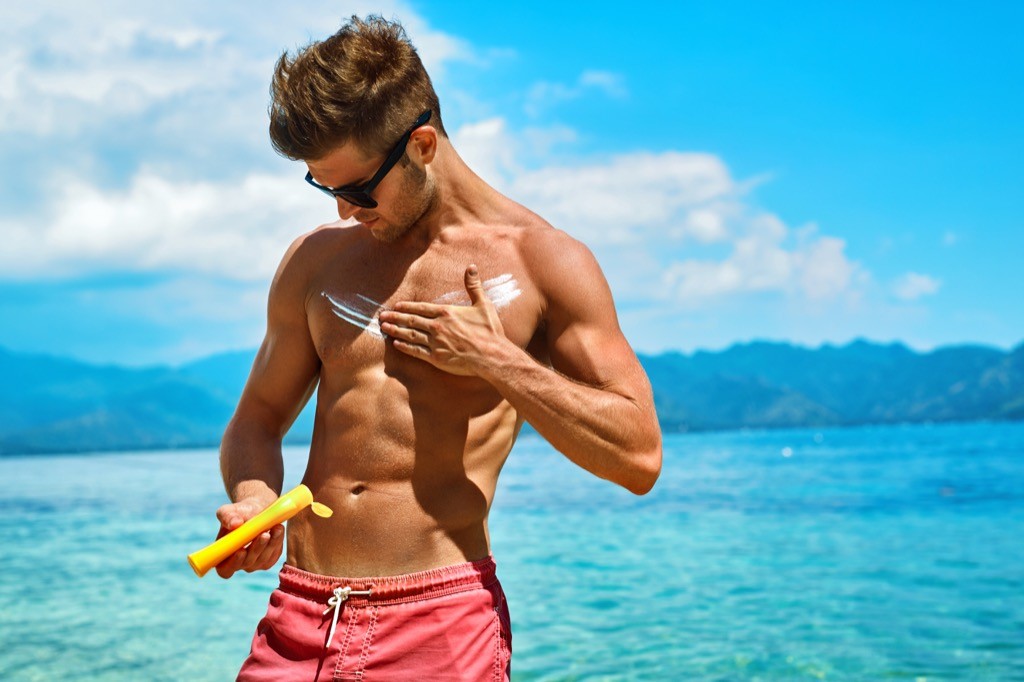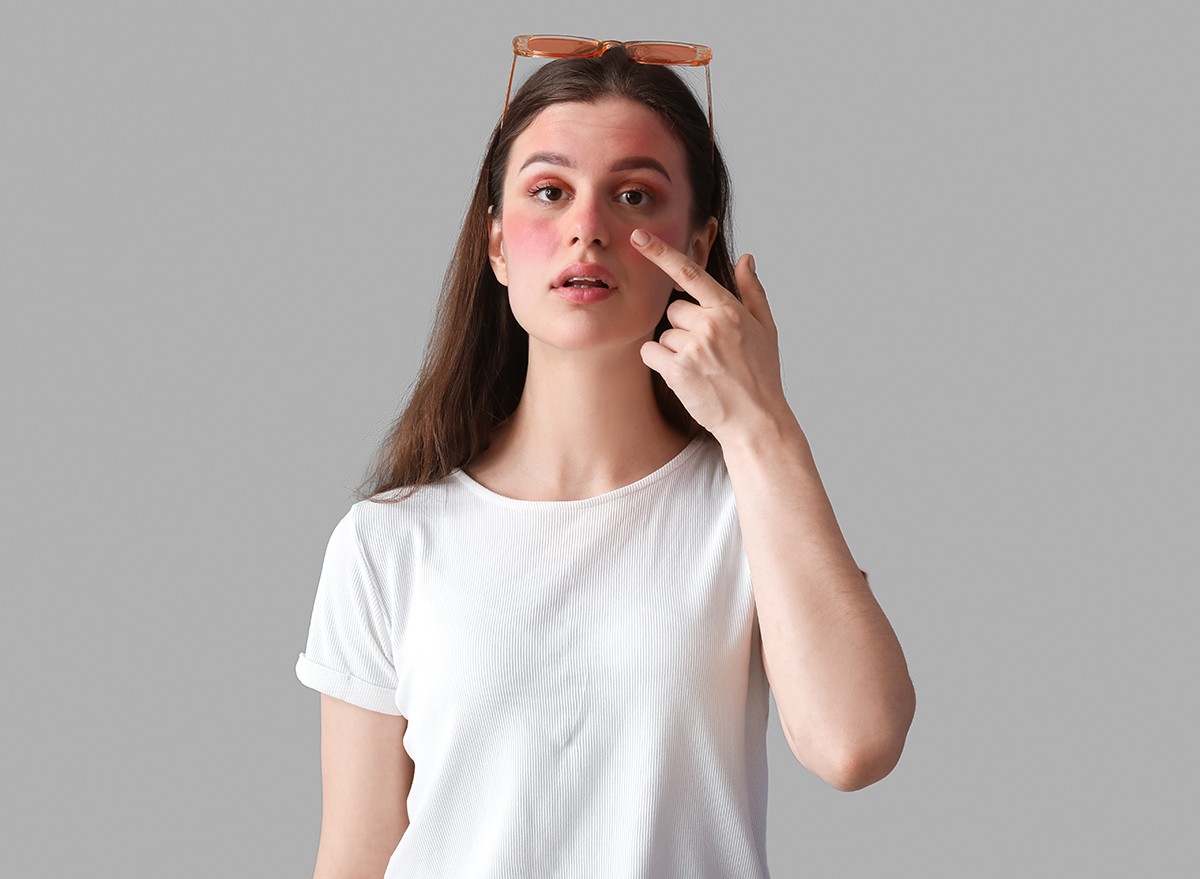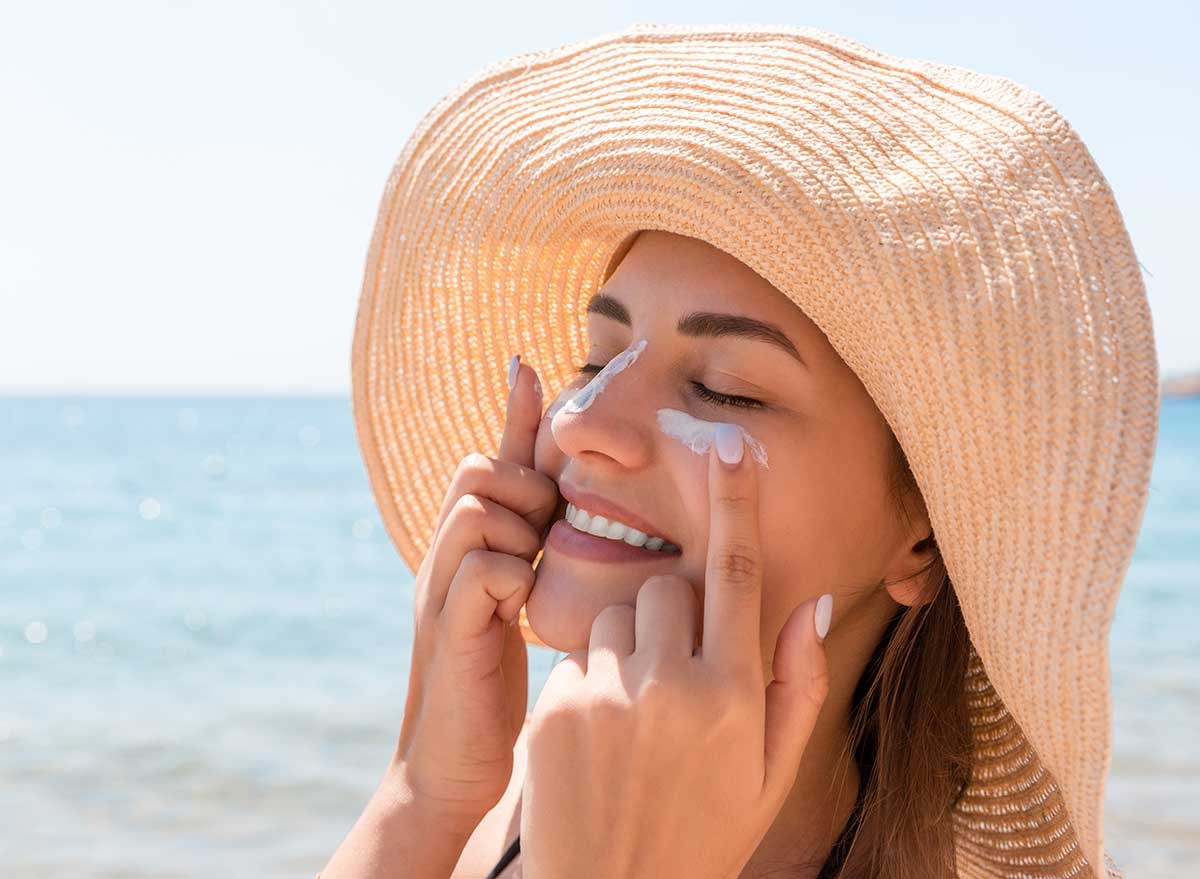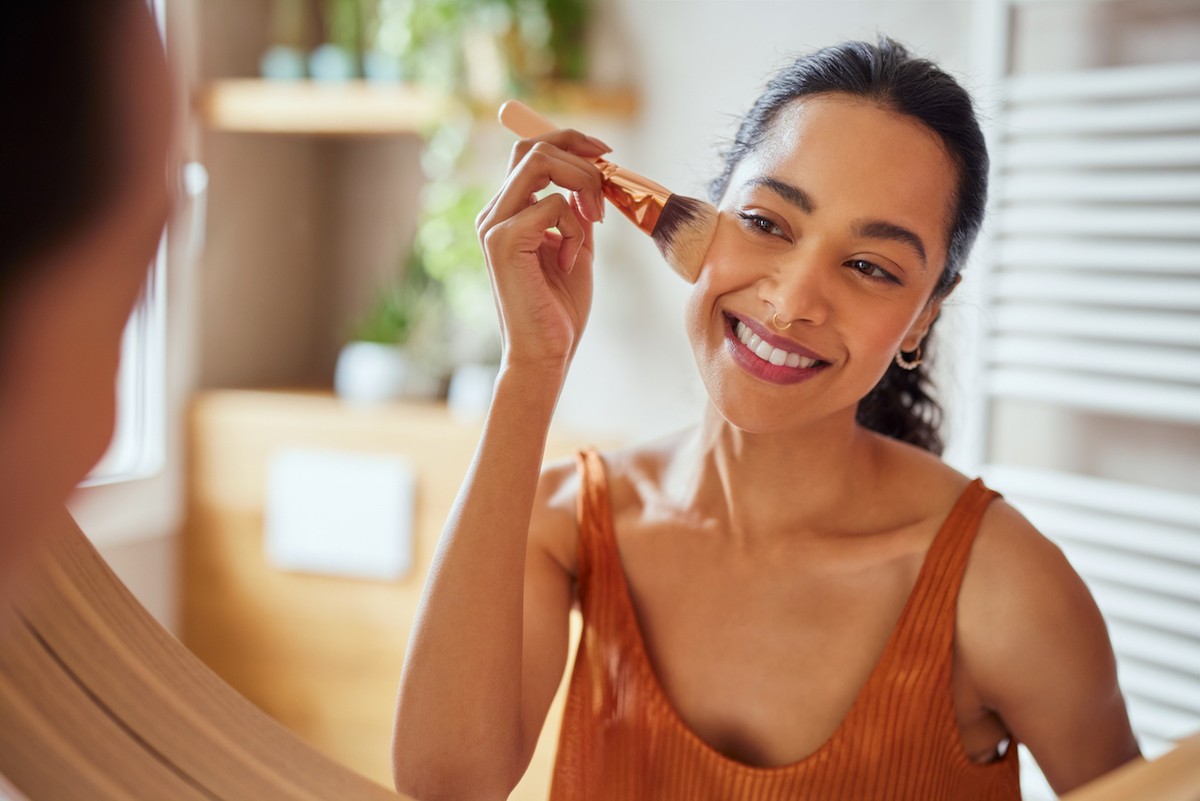The Latest TikTok Health Hack You Should Definitely Avoid, Experts Say

TikTok is fun for lots of things, whether it’s cooking, beauty, fitness, you name it; there’s probably some good content that will keep you scrolling. But some content creators are sharing health hacks or challenges that are useless at best and dangerous at worst—and people are actually trying some of the worst offenders (spoiler alert, the Benadryl challenge is incredibly dangerous and you should not do it). One recent trending health hack is called sunscreen contouring, where sunscreen is applied on certain parts of the face, letting the sun’s rays color the skin to create a certain look. Here’s why experts are warning against this TikTok trend.
RELATED: Surging Car Thefts Traced to TikTok Trend.
No Such Thing As a Healthy Tan

Tanning is not something you should be deliberately trying to achieve. “It is the simple truth that no tan is safe for your skin. Any tan means your DNA has been harmed,” Sheilagh Maguiness, MD, a board-certified dermatologist, tells Allure. “The areas that tan have been damaged and will be more prone to photoaging and skin cancers in the long run.”
Yes, It’s Dangerous

Deliberately using sunscreen only on certain spots is dangerous. “Patients are putting their skin in danger when they choose to expose [it] to the sun with no sunscreen protection. When you are contouring with sunscreen, you are exposing your skin to radiation,” Jeannette Graf, MD, a board-certified dermatologist and assistant clinical professor of dermatology at Mount Sinai School of Medicine in New York City, tells Allure.
It’s Not a Good Look

You run the risk of looking bizarre with this trend. “First of all; allowing UV rays from the sun to tan selected regions of your face simply means that the UV rays are allowed to wreak damage on the unprotected areas of the skin,” says Dr. Rachel Ho. “While the tanned parts of the face may look bronzed; you’ll also start to find signs of premature aging in these regions of the face such as wrinkles, enlarged pores and hyperpigmentation too. Would you like these too?”
RELATED: Is It Safe to Use Lemon Juice in Your Hair?
Sun Protection For Beautiful Skin

What does help you have beautiful, wrinkle-free skin is sun protection. “Use a quarter-sized dollop for the full face,” dermatologist Joshua Zeichner, MD, tells Refinery29. “Start with the middle of the face and rub the sunscreen out towards the periphery, making sure to get into the hairline. This ensures that you have no missed areas. Reapply every two hours or immediately after heavy sweating or swimming.”
It Doesn’t Even Work

You’re damaging your skin for absolutely nothing. “The likelihood of achieving a contoured effect and ‘snatched’ look is zero to none,” makeup artist Hillary Clark tells Allure. “You can’t control the way that the sun will hit your face, due to reflections off of sand, pavement, buildings, and water. And some areas are more prone to developing melanin than others, so achieving the desired contour effect is impossible.”